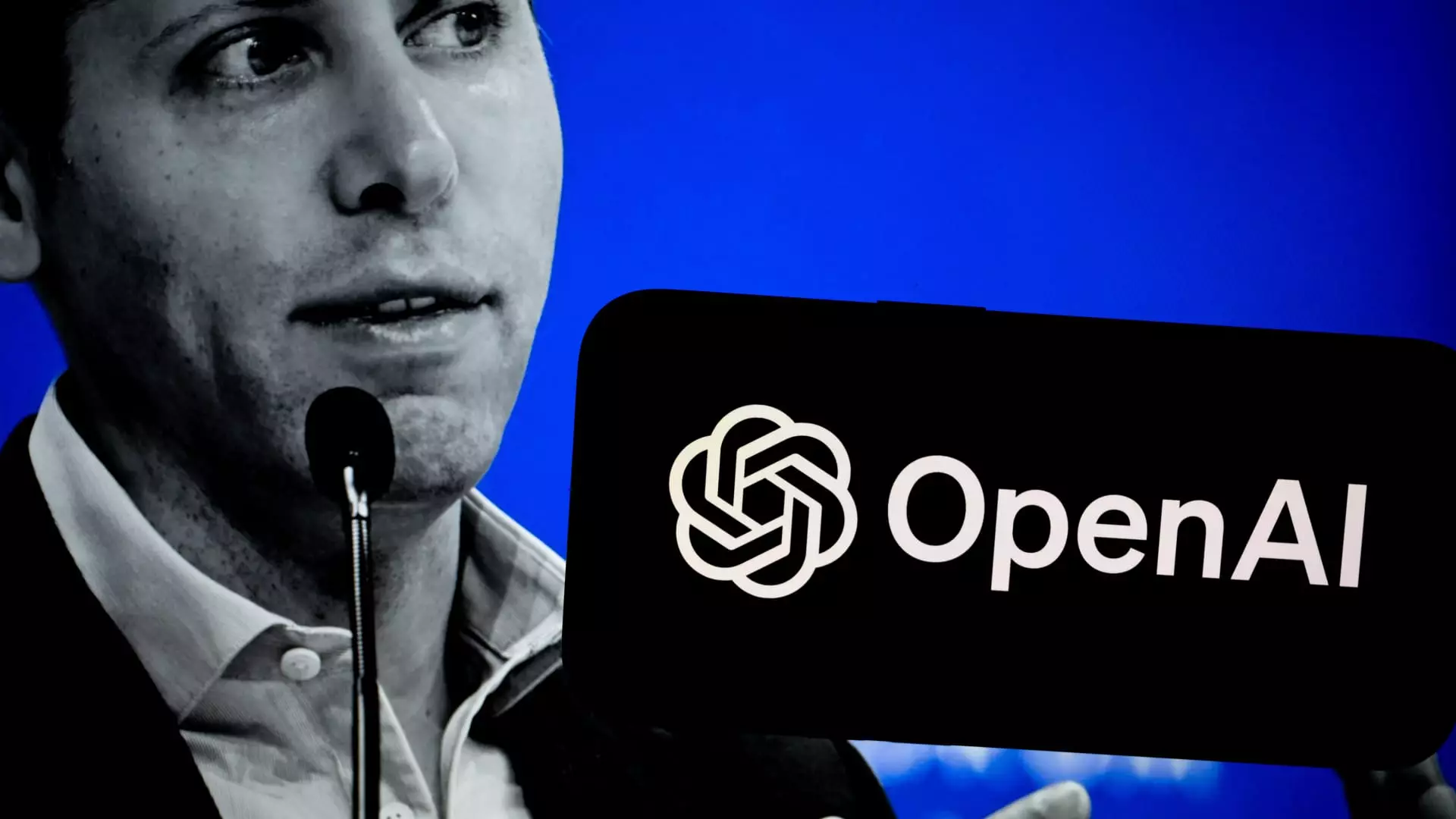The recent all-hands meeting at OpenAI has brought to light significant developments within the organization, primarily regarding its leadership and future structure. CEO Sam Altman explicitly refuted claims that he would receive a substantial equity stake in the company, asserting this narrative is “just not true.” This revelation illustrates the unclear dynamics surrounding executive compensation in rapidly growing tech firms, especially in pivotal industries like artificial intelligence (AI).
The denial of Altman’s potential equity stake came during a meeting that aimed to address internal and external speculations about the company’s trajectory. According to sources familiar with the meeting, both Altman and the company’s chief financial officer, Sarah Friar, communicated that investors had expressed concerns regarding Altman’s lack of equity in a company that has blossomed tremendously since its inception almost a decade ago. Despite these investor worries, Altman emphasized that there are “no current plans” regarding compensation in the form of equity at this time.
Adding to the complexity of this situation is the involvement of Bret Taylor, the Chairman of OpenAI. He confirmed that while discussions around Altman’s compensation structure have taken place within the board, no concrete plans or figures have been established. The board’s ongoing deliberations might hint at a significant shift in how OpenAI approaches leadership compensation, particularly in an environment where tech talent is fiercely contested.
The atmosphere at OpenAI is further complicated by recent executive departures, signaling a tumultuous transition period. Just prior to Altman’s remarks, three high-ranking executives announced their resignations. Notably, Chief Technology Officer Mira Murati, who temporarily took on the role of CEO, departed after six years with the company. Other key figures, including research chief Bob McGrew and research vice president Barret Zoph, also confirmed their exits.
These departures raise questions about the company’s internal cohesion and direction as it prepares for what Altman described as a “great transition.” He suggested that while the organization is considering significant changes, including a potential shift towards a for-profit model, the exits of these executives are not necessarily tied to the restructuring discussions. Instead, Altman characterized these departures as personal transitions for the individuals involved.
OpenAI’s financial landscape is also noteworthy, particularly as the company navigates a funding round expected to value it at over $150 billion. Thrive Capital is reportedly leading this initiative with plans to inject $1 billion, while Tiger Global is expected to contribute as well. Such massive valuations indicate not only confidence in OpenAI’s potential but also reflect the fierce competition within the AI sector. The support from heavyweight investors like Microsoft underscores the significance of OpenAI in the tech ecosystem.
Despite the excitement surrounding its growth, the organization is also grappling with criticism concerning its pace and operational safety. Current and former employees have voiced concerns regarding the implications of rapid expansion on governance and safety measures. These tensions were evident during Altman’s earlier ousting in November 2022, which prompted overwhelming backlash from staff, ultimately leading to his reinstatement shortly thereafter.
As OpenAI moves forward, it stands at a crossroads. With discussions regarding equity, rapid leadership turnover, and a potential shift to a more profit-oriented model, the company’s future is uncertain yet promising. Altman has expressed optimism about the transitions within the company, suggesting they may pave the way for stronger growth and innovation.
However, the challenges are myriad. The departure of key individuals raises concerns about whether OpenAI can maintain its vision and operational integrity. Moreover, as it continues to evolve in an industry characterized by intense competition and scrutiny, the importance of sound governance and strategic planning becomes increasingly critical.
OpenAI is navigating a complex landscape of executive changes, potential restructuring, and fierce market competition. The responses of its leadership to these challenges will be pivotal for its future trajectory and ultimately determine how it balances innovation with safety and ethical considerations in the rapidly evolving AI domain.


Leave a Reply